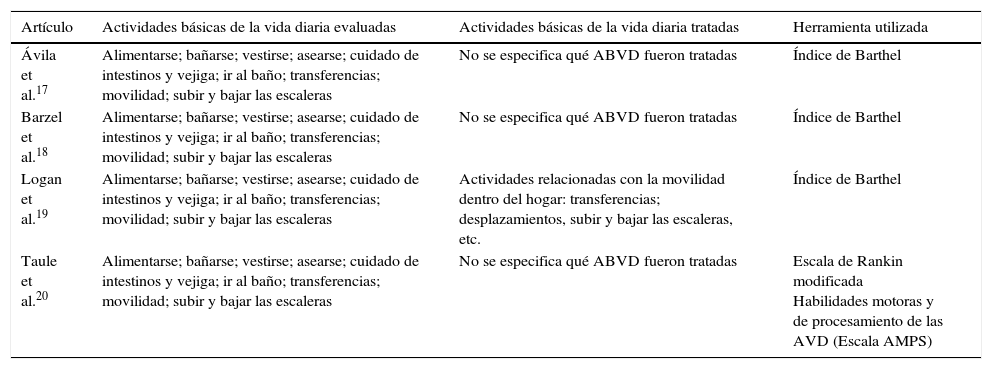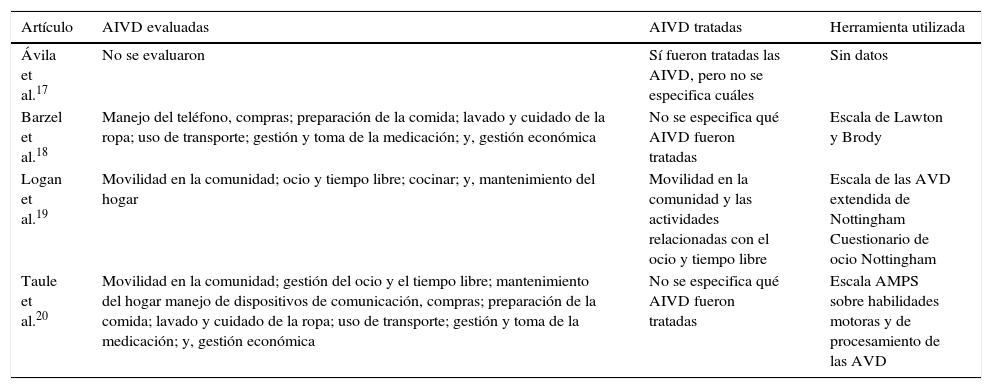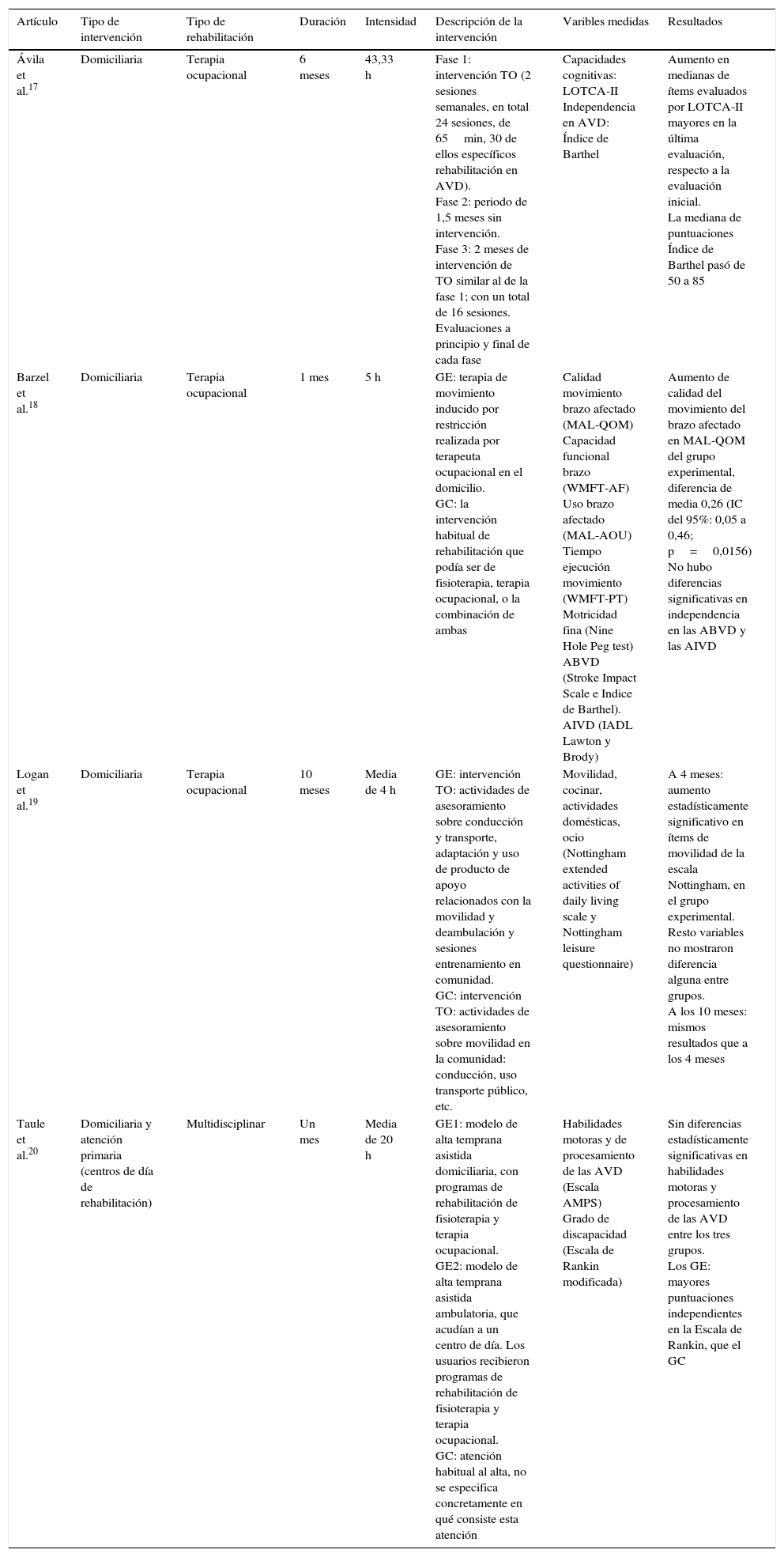Los programas de rehabilitación domiciliaria y ambulatoria son fundamentales en la recuperación funcional en personas con daño cerebral adquirido. El objetivo de esta revisión es comprobar la efectividad de programas de terapia ocupacional domiciliaria y atención primaria, sobre el nivel de independencia de las actividades de la vida diaria, en personas adultas con daño cerebral adquirido.
MetodologíaSe realizó una búsqueda bibliográfica, en bases de datos especializadas en revisiones sistemáticas (CRD Database) y de estudios originales (Pubmed, Scopus, Web of Science y OTseeker). Se analizaron las siguientes variables: funcionalidad en las actividades de la vida diaria, n.° de días de estancia hospitalaria, intensidad de las sesiones de rehabilitación realizadas, tiempo de espera desde el alta hospitalaria al inicio del proceso de rehabilitación y n.° de reingresos.
ResultadosSe seleccionaron una revisión sistemática y cuatro estudios originales. Tres de los cuatro estudios fueron ensayos clínicos aleatorizados, el estudio restante fue un ensayo clínico no controlado.
ConclusionesLa evidencia es limitada para afirmar con rotundidad la efectividad de los programas de terapia ocupacional en rehabilitación domiciliaria y ambulatoria, en personas con daño cerebral adquirido. Se produjeron algunas diferencias significativas sobre los niveles de independencia en actividades de la vida diaria, fruto de intervenciones muy heterogéneas entre sí.
Home and outpatient rehabilitation programmes are crucial in the functional recovery of people with an acquired brain injury. The objective of this review was to determine the effectiveness of home occupational therapy programmes and primary care in increasing independence for activities of daily living in adults with an acquired brain injury.
MethodologyA literature search was conducted in databases specialised in systematic reviews (CRD Database) and in original articles (Pubmed, Scopus, Web of Science and OTseeker). The following variables were analysed: activities of daily living functionality, length hospital stay, the intensity of the rehabilitation sessions carried out, waiting time from hospital discharge to the start of the rehabilitation process, and number of readmissions.
ResultsA systematic review and four original studies that met the inclusion criteria were retrieved. Three of the four studies were randomised controlled trials and the remaining study was a non-controlled clinical trial.
ConclusionsThe evidence is too limited to allow definitive conclusions to be drawn on the effectiveness of occupational therapy programmes in the home or ambulatory setting in people with an acquired brain injury. There were some significant differences in levels of independence in activities of daily living, but these were the result of widely heterogeneous interventions.
Artículo
Comprando el artículo el PDF del mismo podrá ser descargado
Precio 19,34 €
Comprar ahora











